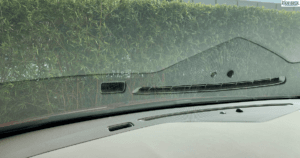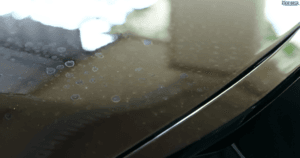Polishing your car is an essential part of maintaining its appearance, value, and overall protection. However, the time it takes to polish a car can vary based on several factors, including the method used (machine or hand polish), the condition of the car, and the experience of the person performing the task.
In this blog, we’ll break down how long it takes to polish a car and why it’s a crucial step in the detailing process.
Factors Affecting Car Polishing Time
Before diving into specific timeframes, it’s important to understand what can affect how long the polishing process will take. These factors include:
1. Size of the Vehicle:
A larger car, like an SUV, will take longer to polish than a compact sedan.
2. Condition of the Paint:
If the paint is in bad condition with scratches, swirls, and oxidation, it may require more extensive polishing.
3. Level of Polish Desired:
A simple one step polish will take less time compared to a multi-step correction process.
4. Experience Level:
A professional or someone who has taken a car detailing training course from us will likely complete the process faster and more efficiently than a beginner.
Related Blog: How Much Does Car Polishing and Buffing Cost?
How Long Does it Take to Machine Polish a Car?

Machine polishing is a more efficient method for polishing a car and often yields better results than hand polishing. Depending on the factors mentioned above, the time to machine polish a car can range from 4 to 8 hours for a typical vehicle. Here’s a breakdown of the process:
1. Preparation (1-2 hours):
This includes washing the car thoroughly, claying it to remove contaminants, and masking off areas that you don’t want to polish (like trims and rubber).
2. Polishing (3-5 hours):
The actual polishing process involves using a machine polisher, polishing compounds, and different pads to correct the paint surface. Professionals who have completed a auto detailing training often use multiple stages of polishing to achieve the best results, which can extend the time required.
3. Final Inspection and Clean-Up (30 mins–1 hour):
After polishing, the car needs to be inspected for any remaining swirls or scratches, and excess polish must be wiped off.
Machine Polishing vs Hand Polishing
Many car owners may ask, “Is machine polishing always necessary?” In some cases, hand polishing can be sufficient, especially for cars with minor imperfections. However, there are distinct differences in time and effectiveness between the two methods.
How Long Does it Take to Hand Polish a Car?

Hand polishing is a more labor intensive process and generally takes longer than machine polishing. Depending on the size and condition of the car, hand polishing can take between 6 to 12 hours.
1. Preparation (1-2 hours):
Similar to machine polishing, the car must be properly washed and prepped.
2. Polishing (4-10 hours):
Hand polishing involves using polishing pads and applying products manually to the surface. This method takes longer because it requires consistent pressure and movement, and it’s more difficult to achieve the same level of correction as with a machine.
3. Final Inspection (30 minutes):
Like machine polishing, hand polishing should be followed by a thorough inspection to ensure no areas were missed.
While hand polishing is often recommended for minor imperfections or delicate areas, it’s not as effective for heavy corrections. Most professional detailers, especially those who have undergone a car detailing course, prefer machine polishing for the majority of the work.
Related Blog: Should You Wax a Car After Polishing?
Why Does Polishing Take So Long?
Polishing isn’t just about making your car shiny; it’s a detailed process that removes imperfections, corrects the paint, and restores the car’s surface to a like-new condition. That’s why it can take several hours or even a full day to complete, depending on the car’s needs.
Additionally, polishing is an essential skill learned in most car detailing classes, and professionals spend time mastering this art to provide the best results. Investing in a proper car detailing course can help detailers save time while maintaining the quality of their work.
The Benefits of Professional Car Polishing

While some car owners may attempt to polish their vehicles themselves, professional polishing offers several key benefits:
1. Better Results:
Professionals who have completed car detailing courses have the experience, equipment, and products to provide the best results.
2. Saves Time:
Even though polishing takes time, a trained professional will complete the task much faster than a beginner. They can also advise on the best products and methods for your vehicle.
3. Paint Protection:
Polishing doesn’t just make your car look good; it removes scratches, swirls, and oxidation, improving the longevity of your car’s paintwork.
Read More: From Tinting to Drying: How Long Does the Window Tinting Process Take?
How to Learn the Art of Polishing

If you’re passionate about car detailing or want to learn how to polish cars professionally, enrolling in a our auto detailing classes is a great way to get started. These courses often cover everything from basic hand polishing techniques to advanced machine polishing methods.
Whether you’re interested in detailing as a hobby or as a business, taking auto detailing training will provide you with the knowledge and skills you need to succeed.
In addition to polishing, a comprehensive detailing training will teach you about paint correction, protection techniques, and the proper use of detailing tools and products. Monster Detailing School, for example, offers a variety of courses that can turn your passion for cars into a rewarding career.
Conclusion
Polishing a car is a time consuming but rewarding process that enhances the appearance, value, and protection of your vehicle. Whether you’re using a machine or hand polishing, expect to spend anywhere from 4 to 12 hours on the task, depending on the condition of the car and your experience level.
For those who want to get into car detailing as a profession, taking a car detailing training course or will teach you how to polish cars efficiently while delivering high quality results.
So, next time you think about polishing your car, remember that it’s not just about making your vehicle look shiny, it’s about restoring its beauty, preserving its value, and protecting its paintwork for the long haul.










